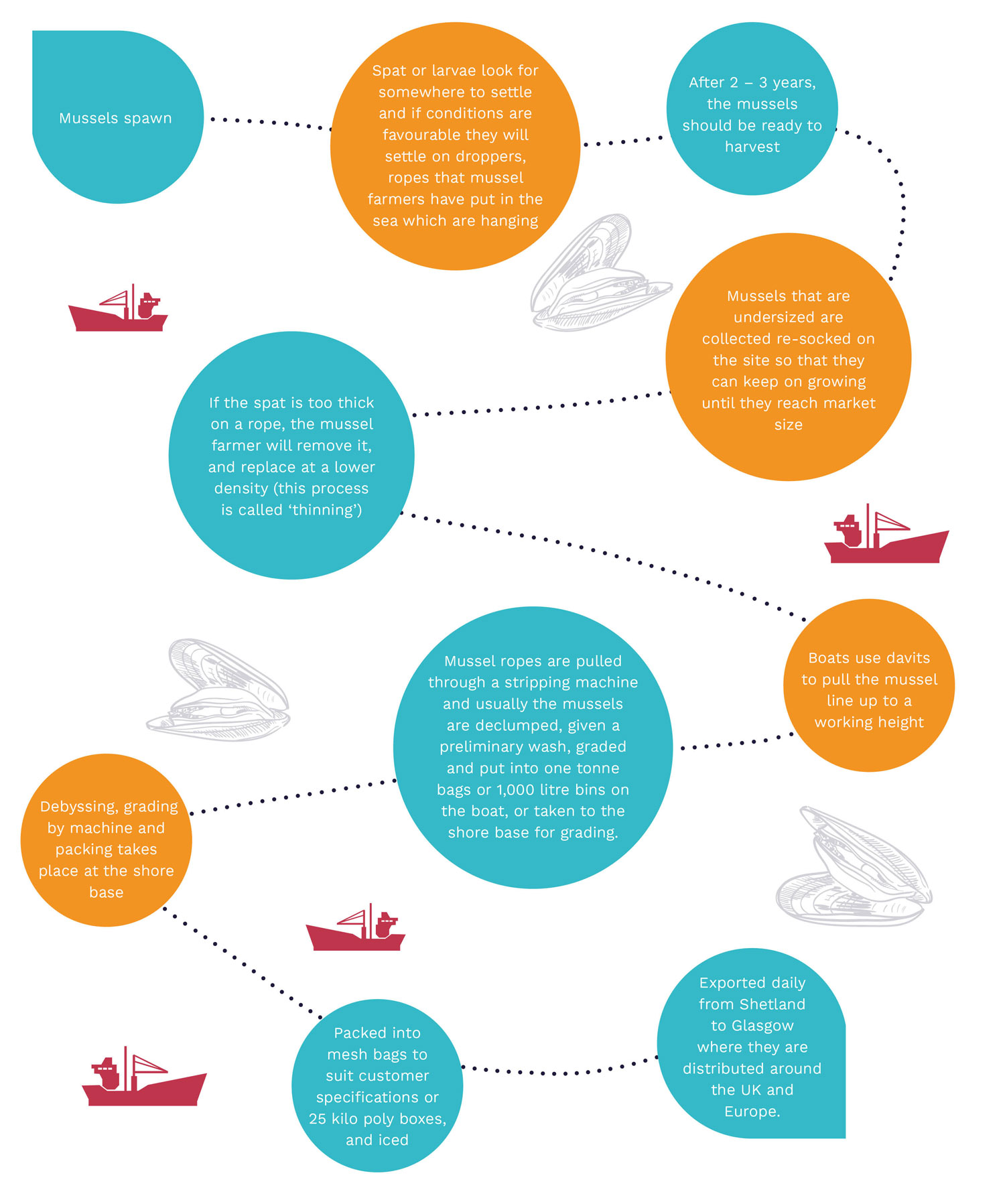Mussels
Mussels thrive in the clean and nutrient-rich waters around Shetland
Shetland’s rope-grown mussels have thinner shells and a higher meat content than mussels from the sea bed.
Some 81 per cent of Scotland’s farmed mussels are produced is Shetland. The industry is worth around £6.3 million to the local economy and has been built on its outstanding reputation for quality, with more than 6,800 tonnes produced annually.
The industry employs around 100 people at 133 active shellfish sites in Shetland.
Co-operation is key for shellfish farmers, they depend upon clean water and work with other users of the marine environment, public bodies and the wider communities to protect and sustain this resource and, at the same time, minimise visual impact on the landscape by working hard to maintain clean, safe and orderly sites.
Achieving full MSC accreditation underpins Shetland’s shellfish growers’commitment to sustainability, which they can, in turn, demonstrate to their customers.

DID YOU KNOW?
The orange meats are the females; white meats are the males – they both taste the same.

DID YOU KNOW?
In rope grown mussels, the spat (baby mussels) settles naturally onto ropes which are suspended from lines anchored in voes and other sheltered areas around Shetland

DID YOU KNOW?
Mussels are bivalves which means they have two shells

DID YOU KNOW?
Mussels suck up to 50 litres of water a day
From sea to plate: farmed mussels

